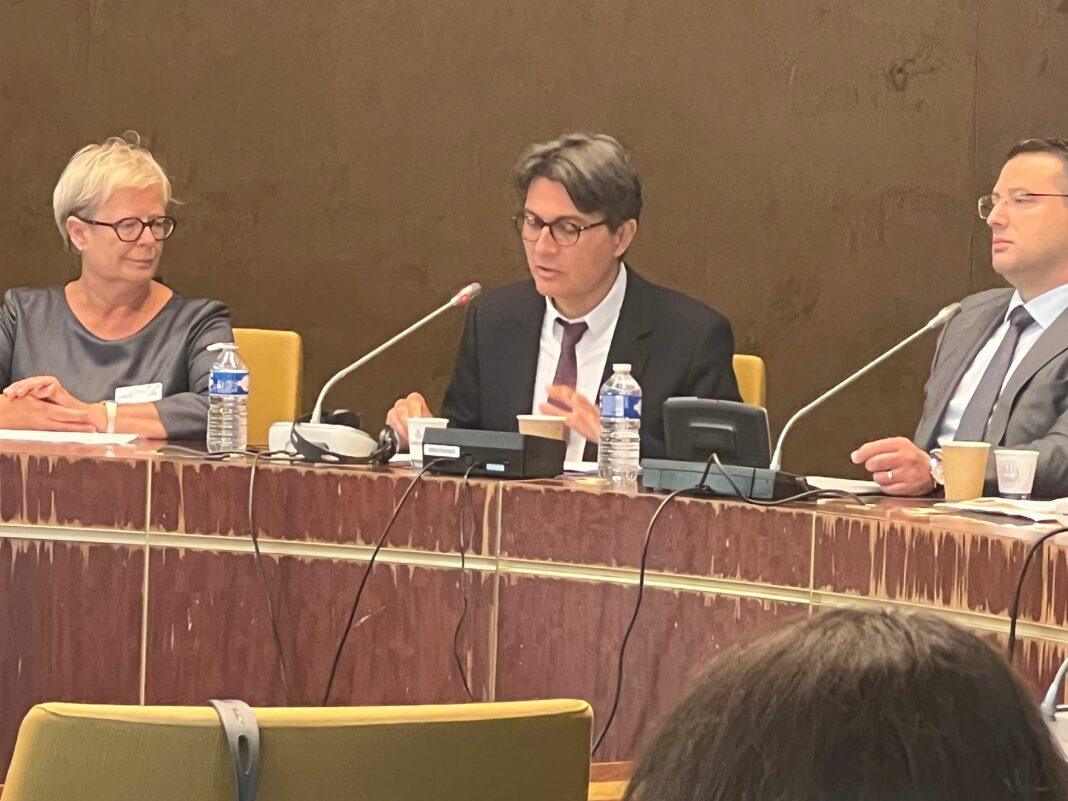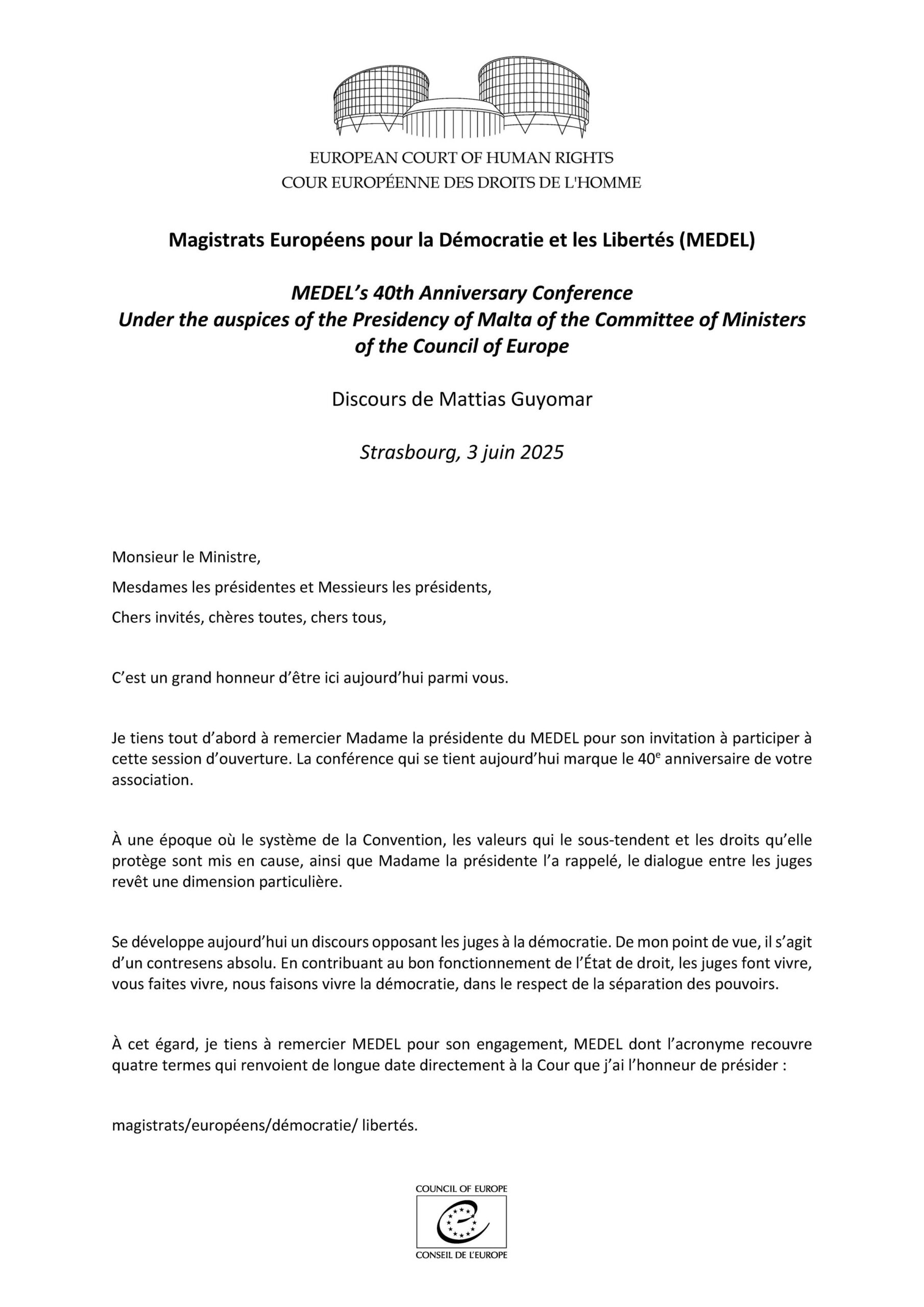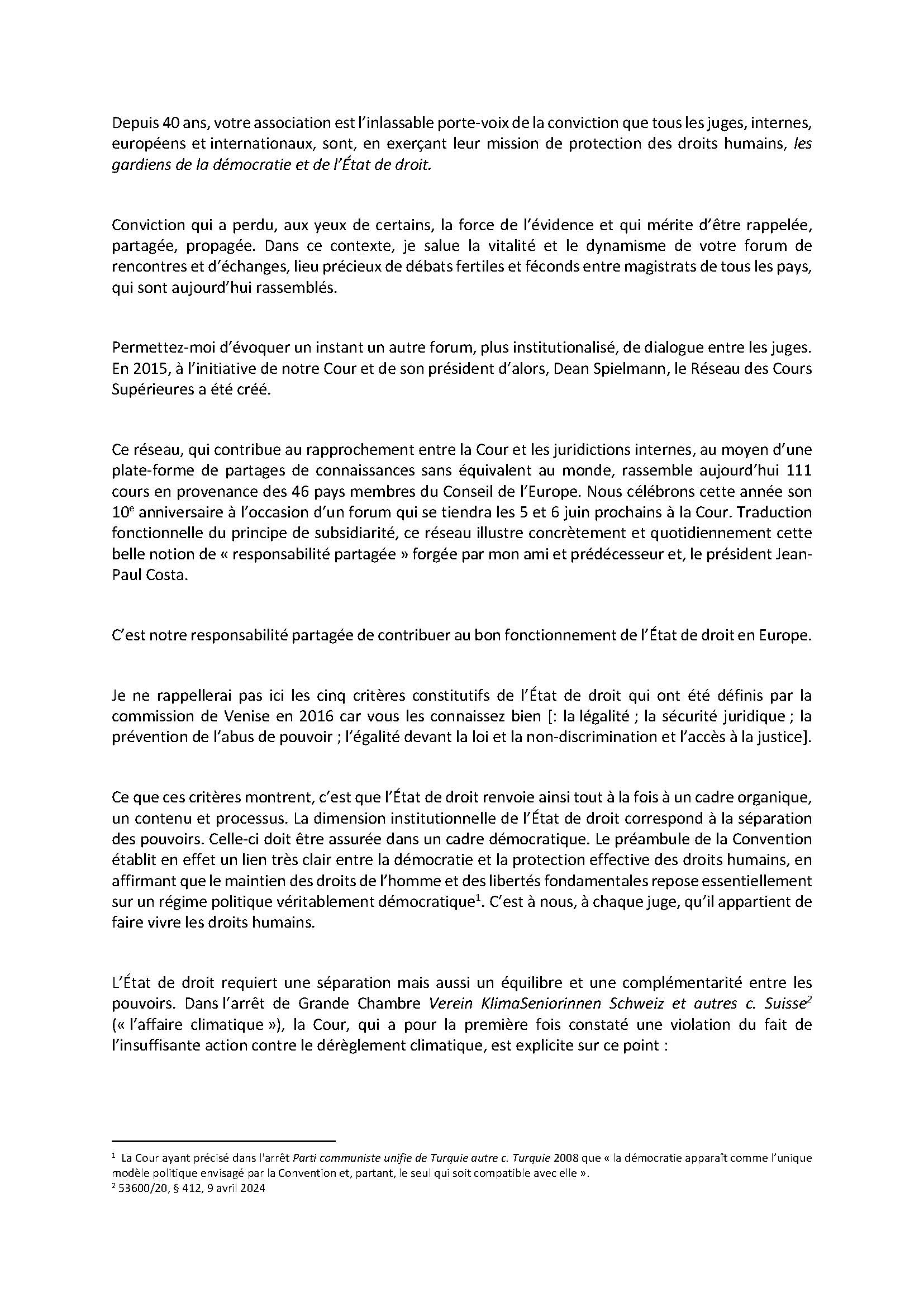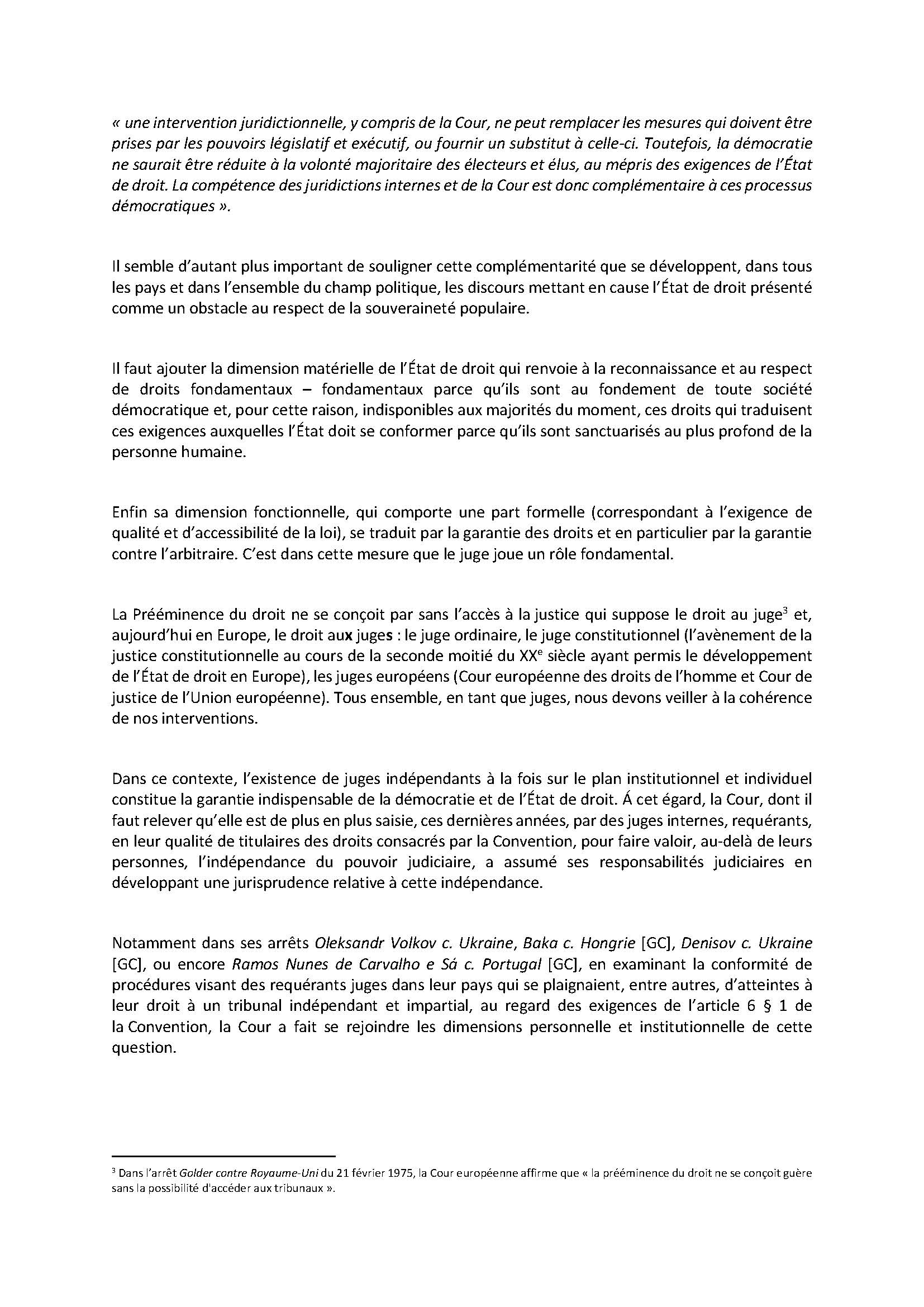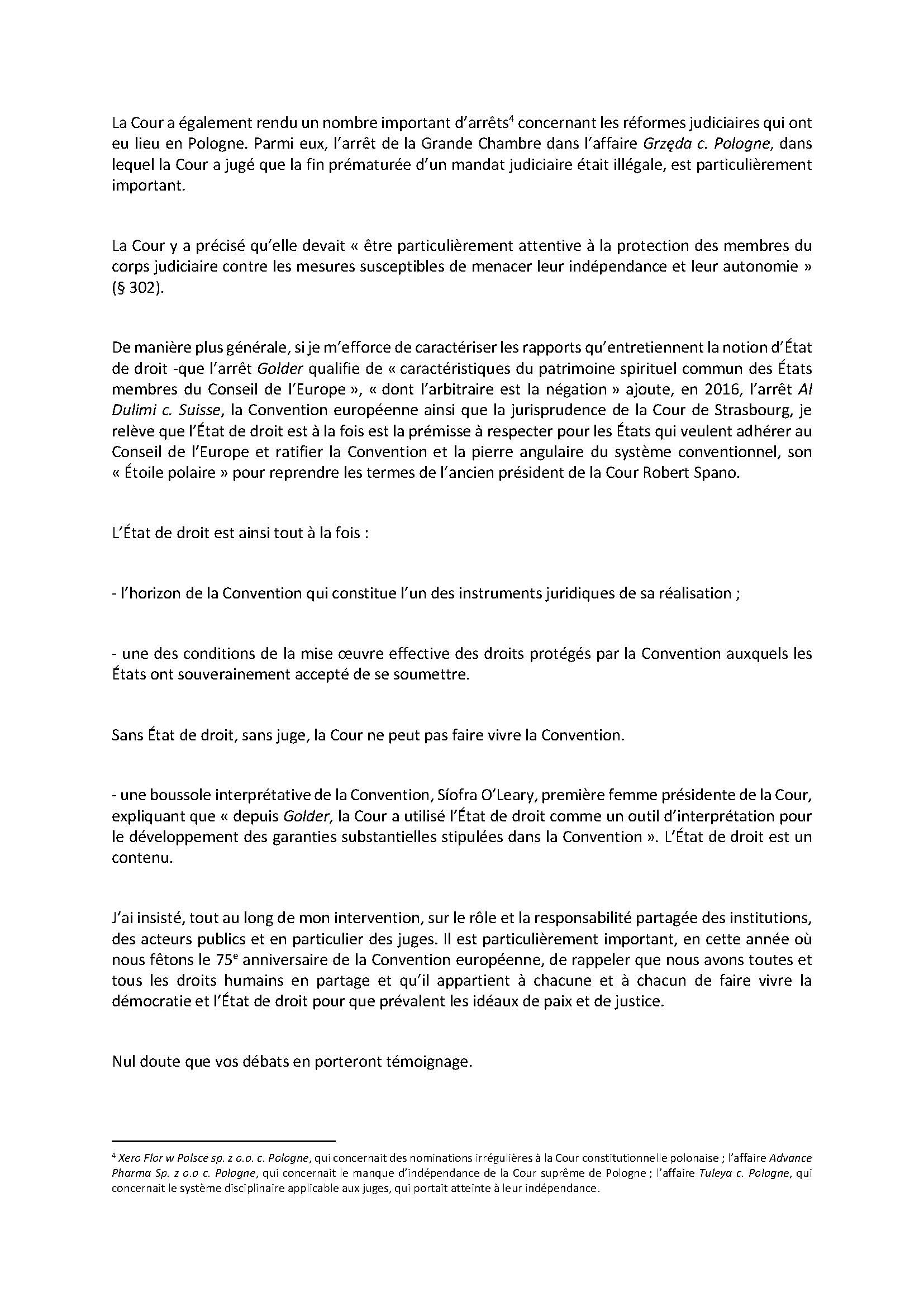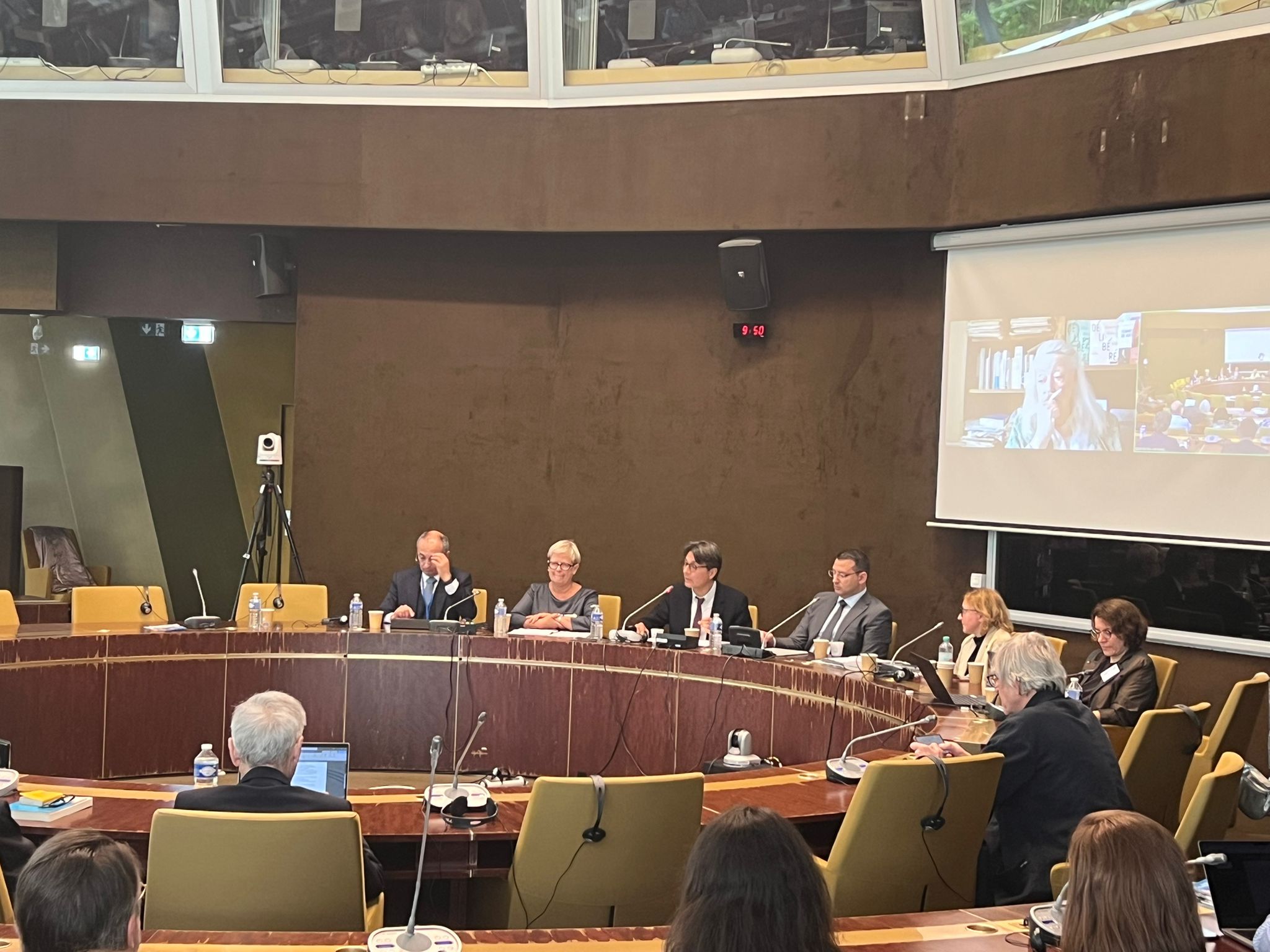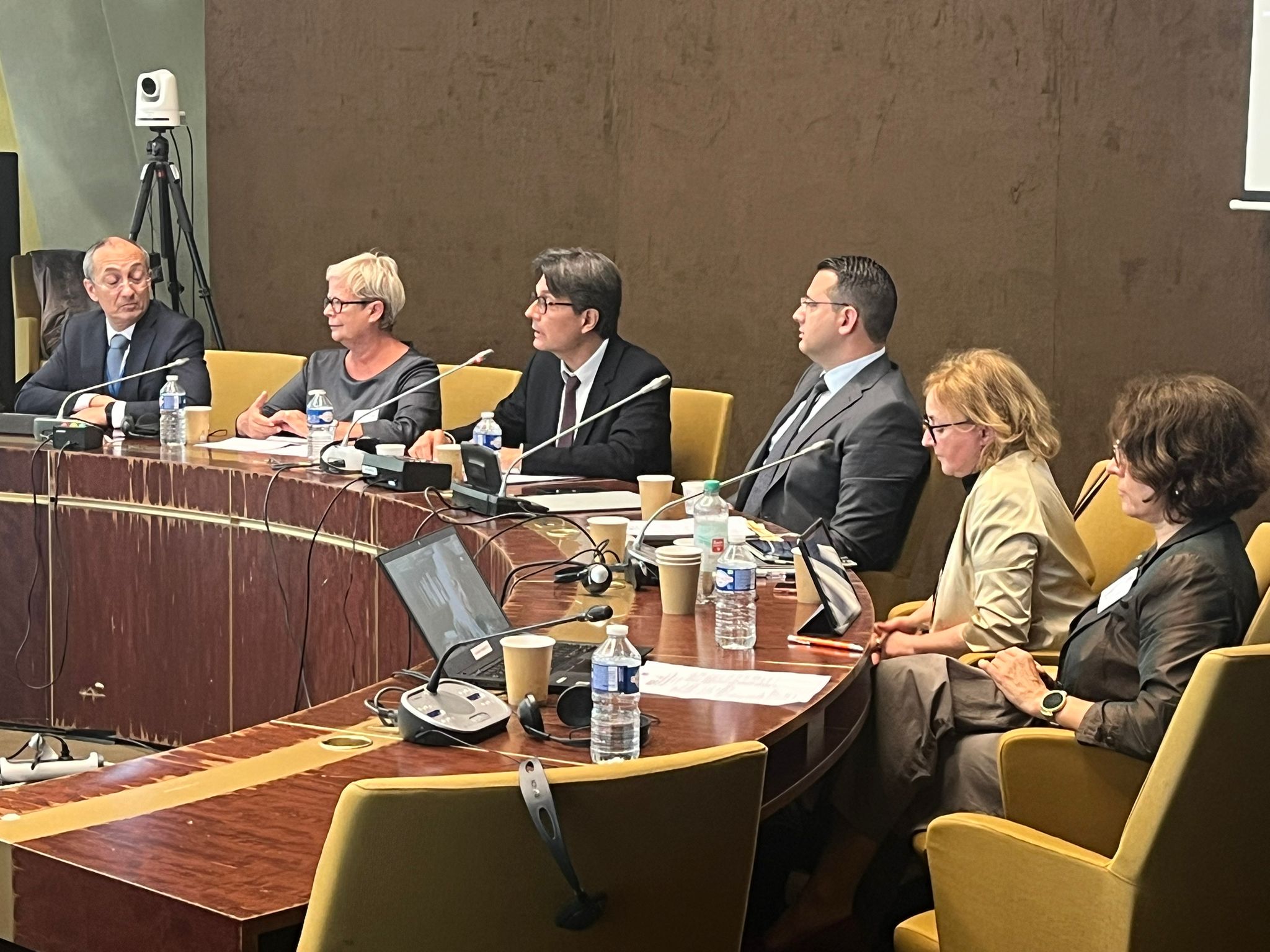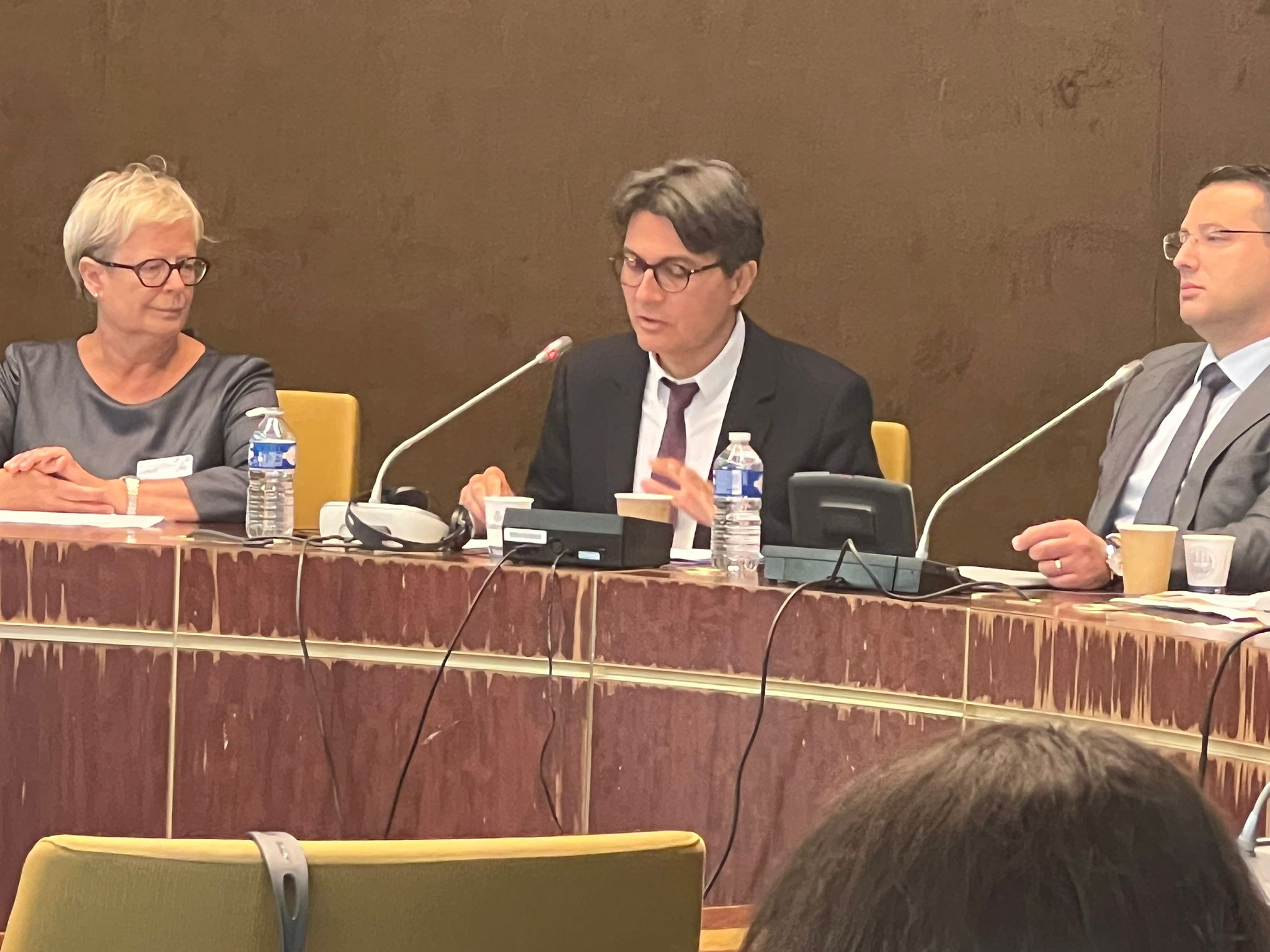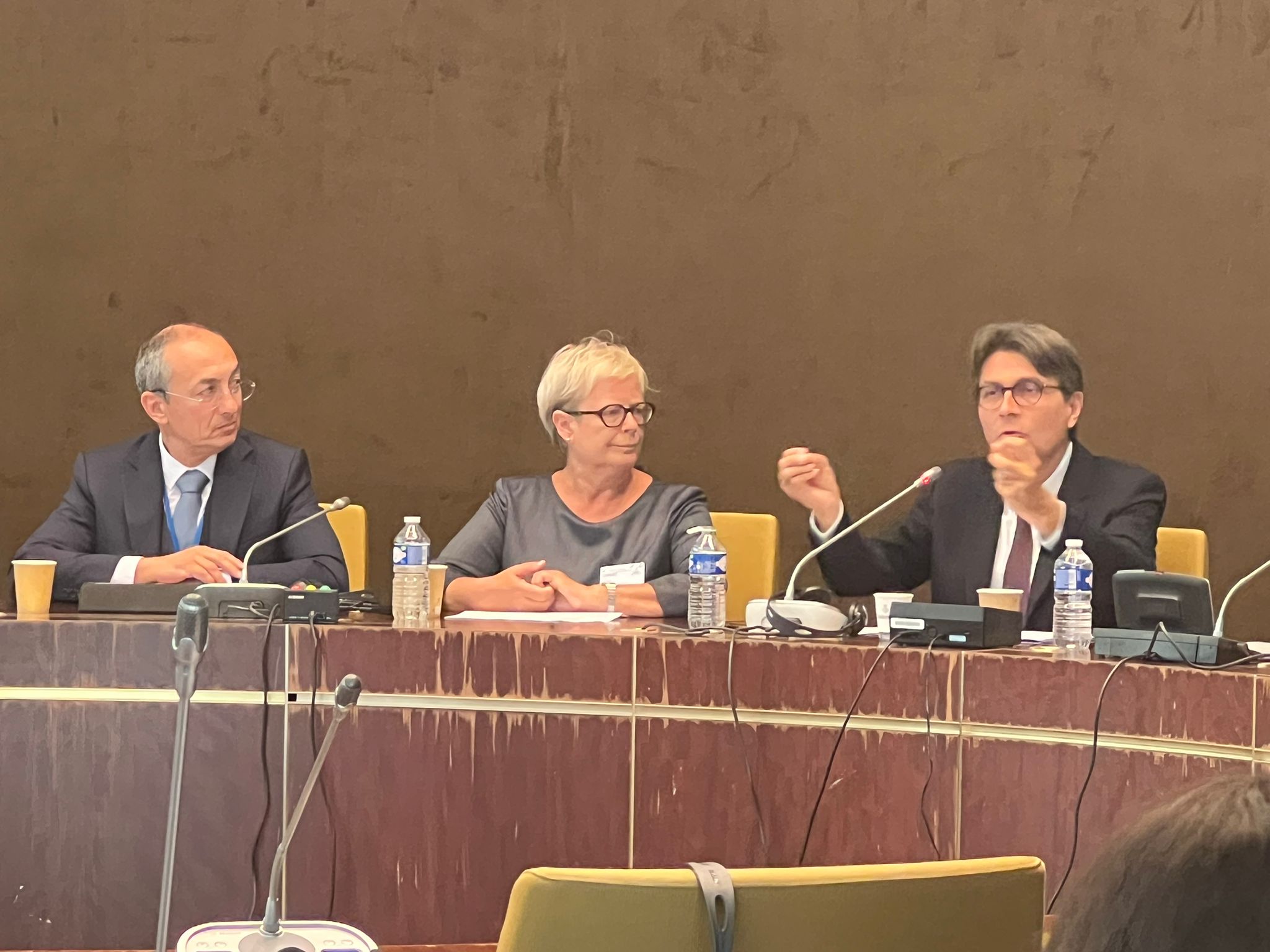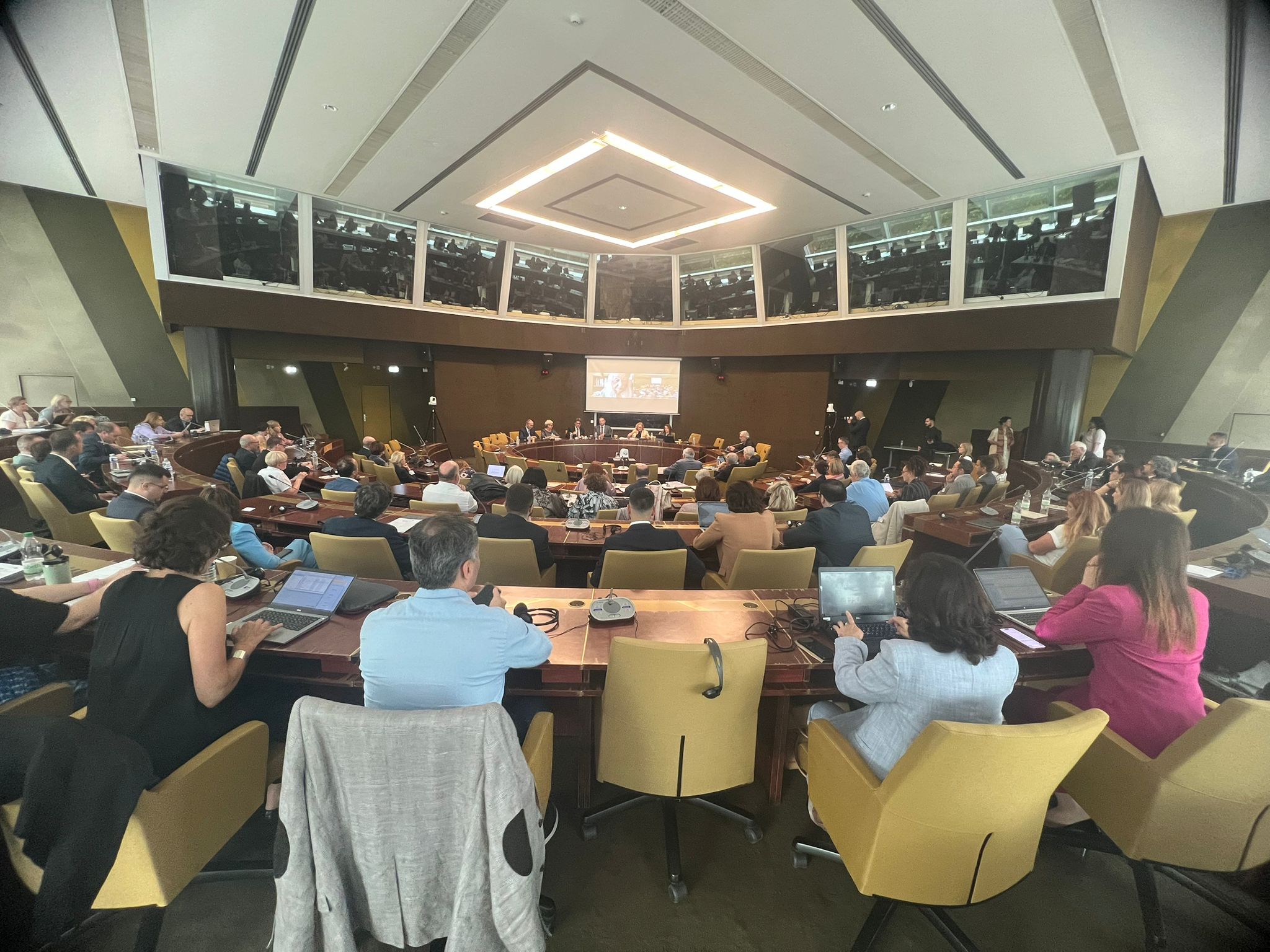
Mr. Minister,
Madam Presidents and Mr. Presidents,
Dear guests, dear all,
It is a great honour to be here with you today.
Firstly, I would like to thank Madam President of Medel for her invitation to join this opening session. Today’s conference marks the 40th anniversary of your association.
At a time when the Convention system, its underlying values and the rights it protects are questioned, as Madam President recalled, the dialogue between judges takes on a special significance.
In these days, a discourse opposing judges and democracies has unfolded. From my point of view, it is an absolute contradiction. By contributing to the proper functioning of the rule of law, judges, you, we, bring democracy to life, while respecting the separation of powers.
To this regard, I would like to thank Medel for its engagement, Medel whose acronym covers four terms long connected with the Court I have the honour of presiding: magistrates/European/democracy/liberties.
For 40 years, your association has been the tireless voice of the conviction that all judges, national, European and international, in the exercise of their mission as protectors of human rights, are the guardians of democracy and of the rule of law. A conviction which, to the eyes of some, has lost the strength of evidence and which deserves to be recalled, shared, disseminated. In this context, I wish to emphasize the vitality and dynamism of your exchange and meeting forum, a precious place for fruitful and fertile debates among magistrates from all countries, who convened here today.
Allow me to briefly mention another, more institutionalised, forum for dialogue between judges. In 2015, at the initiative of our Court and its then President, Dean Spielmann, the Network of Superior Courts was established.
This network, which contributes to bring the Court and national jurisdictions closer by means of a knowledge-sharing platform like no other in the world, brings together 111 courts from the 46 Council of Europe member states. This year, we celebrate its 10th anniversary with a forum which will take place on 5-6 June at the Court. Functional translation of the principle of subsidiarity, this network shows concretely on a daily basis the great concept of “shared responsibility” coined by my friend and predecessor, President Jean-Paul Costa.
It is our shared responsibility to contribute to the proper functioning of the rule of law in Europe.
I will not recall here the five cornerstone criteria of the rule of law defined by the Venice Commission in 2016, as you all know them very well [legality, legal certainty, prevention of abuse of power, equality before the law, non-discrimination in access to justice].
The institutional dimension of the rule of law corresponds to the separation of powers. This shall be ensured within a democratic framework. The Convention’s preamble stipulates a very clear link between democracy and the protection of human rights, while affirming that upholding human rights and fundamental freedoms essentially lays upon a truly democratic political regime[1]. It’s up to us judges, to every judge, to bring human rights to life.
The rule of law requires a separation as well as a balance and complementarity between powers. In the Grand Chamber decision Verein KlimaSeniorinnen Schweiz et autres c. Suisse[2] (the “climate change case”), the Court, which for the first time found a violation due to insufficient action against climate change, is explicit on this point: «Judicial intervention, including by this Court, cannot replace or provide any substitute for the action which must be taken by the legislative and executive branches of government. However, democracy cannot be reduced to the will of the majority of the electorate and elected representatives, in disregard of the requirements of the rule of law. The remit of domestic courts and the Court is therefore complementary to those democratic processes».
It seems all the more important to highlight this complementarity at a time when, in all countries and all across the political field, narratives are developing that question the rule of law by presenting it as an obstacle hampering respect for popular sovereignty.
One must add the material dimension of the rule of law, which refers to the recognition of and respect for fundamental rights – fundamental as they are the ground for every democratic society and, for this reason, are not at the disposal of the majorities of the moment, these are the rights that translate those needs to which the rule of law must conform itself, as they are enshrined at the very essence of the human being.
Finally, its functional dimension, which entails a formal part (corresponding to the need for quality and accessibility of the law), translates itself into the safeguard of fundamental rights and in particular into that against arbitrariness.
It is in this respect that the judge plays a pivotal role.
It is not possible to conceive the supremacy of the law without access to justice, which postulates the right to a judge and, today, the right to judges: ordinary judges, constitutional judges (the advent of constitutional justice along the XX century having paved the way to the development of the rule of law in Europe), European judges (European Court of Human Rights and Court of Justice of the European Union). All together, as judges, we must watch over the consistency of our interventions[3].
In this context, the existence of independent judges from both the institutional and the individual profile, represent the essential guarantee of democracy and of the rule of law. In this respect, the Court, which – we must note – it is more and more consulted by national judges, asking, in their quality of holders of rights enshrined in the Convention, to assert, beyond their individual situation, the independence of the judicial power, has taken on its judicial responsibilities by developing a case law concerning such independence.
Notably, in its decisions Oleksandr Volkov v. Ukraine, Baka v. Hungary [GC], Denisov v. Ukraine [GC], or again Ramos Nunes de Carvalho e Sá v. Portugal [GC], by examining the conformity of procedures where judges were acting as plaintiffs in their own countries, claiming among other things, violations of their right to an independent and impartial tribunal, with reference to art. 6 par. 1 of the Convention, the Court reconnected the individual and institutional dimensions of this issue.
The Court equally rendered a considerable number of decisions[4] concerning the reforms of justice that took place in Poland. Among these, the Grand Chamber decision Grzęda c. Poland, in which the Court ruled that the early termination of a judicial appointment is illegal, is of particular relevance.
Here the Court specified that it had to be «must be particularly attentive to the protection of members of the judiciary against measures that can threaten their judicial independence and autonomy» (par. 302).
In a more general fashion, if I try to outline the relationship between the notion of rule of law – which the Golder decision qualifies as «the characteristics of the common spiritual heritage of the member states of the Council of Europe», «of which arbitrariness is complete opposite», as the decision Al Dulimi v. Switzerland added in 2016 – the European Convention as well as the Strasbourg Court case law, I notice that the rule of law is at the same time the precondition that the States wanting to join the Council of Europe and ratify the Convention shall respect, and the cornerstone of the Convention system, its “North Star”, to quote the terms used by the former Court President Robert Spano.
Therefore, the rule of law is simultaneously:
- The horizon represented by the Convention, which constitutes one of the legal instruments for its realisation;
- One of the conditions for the effective implementation of the rights protected by the Convention, which the member states have sovereignly accepted to submit themselves. Without the rule of law, without judges, the Court cannot bring the Convention to life.
- One the Convention’s interpretive compasses, as Síofra O’Leary, the first woman president of the Court, explained stating that: «after Golder, the Court has used the rule of law as an interpretive tool for developing the substantive guarantees stipulated in the Convention». The rule of law is a content.
All along my presentation, I have stressed the role and shared responsibility of institutions, public actors and judges in particular. In this year when we celebrate the 75th anniversary of the European Convention, it is particularly important to recall that human rights is what we all have in common and that it is up to everyone to bring democracy and the rule of law to life, in order for the ideals of peace and justice to prevail.
No doubt that your discussions will testify this.
Unfortunately, my schedule does not allow me to stay with you all day, but I am very happy to see that some of the Court judges will take part in your sessions today. Let me thank them for that.
I once again thank MEDEL for keeping the Convention and the humanist values on which it is founded alive.
I wish you all a day of enriching and hopeful discussions.
Long live Europe! Long live the liberties!
[1] The Court clarified in the judgment United Communist Party of Turkey and Others v. Turkey (2008) that «democracy appears as the only political model envisaged by the Convention and, therefore, the only one compatible with it».
[2] 2 53600/20, § 412, 9 April 2024.
[3] In the judgment Golder v. the United Kingdom of 21 February 1975, the European Court stated that «the rule of law scarcely exists without the possibility of access to the courts».
[4] Xero Flor w Polsce sp. z o.o. v. Poland, which concerned irregular appointments to the Polish Constitutional Court; Advance Pharma Sp. z o.o. v. Poland, which concerned the lack of independence of the Polish Supreme Court; Tuleya v. Poland, which concerned the disciplinary system applicable to judges, undermining their independence.


